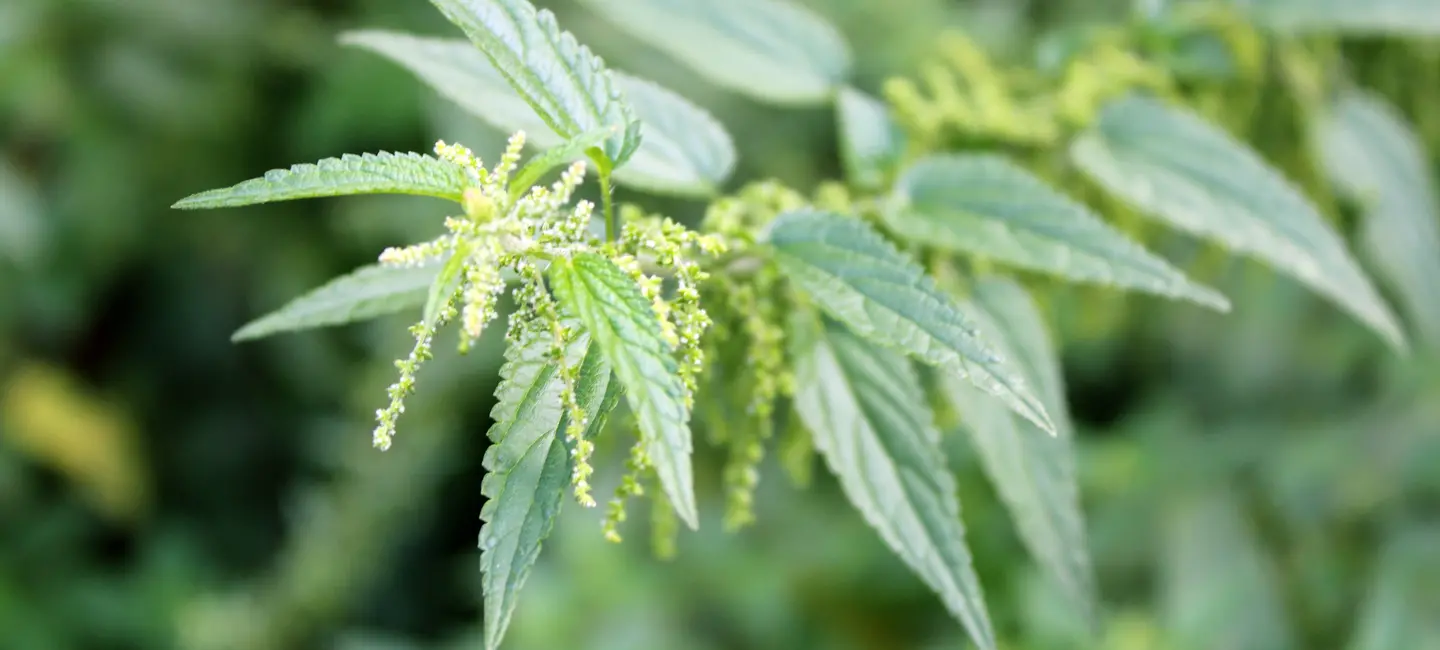
Stinging nettle (Urtica dioica) is a plant with pointed leaves and white to yellowish flowers. The root and above ground parts are used for diabetes.
The stinging nettle plant is typically 2-4 meters tall. It contains ingredients that might decrease swelling and increase urination. The leaves are sometimes eaten as a cooked vegetable.
Stinging nettle is most commonly used for diabetes and osteoarthritis. It is also sometimes used for urinary tract infections (UTIs), kidney stones, enlarged prostate, hay fever, and other conditions, but there is no good scientific evidence to support these uses.
Don't confuse stinging nettle (Urtica dioica) with white dead nettle (Lamium album).
Is It Effective?
NatMed Pro rates effectiveness based on scientific evidence according to the following scale: Effective, Likely Effective, Possibly Effective, Possibly Ineffective, Likely Ineffective, Ineffective, and Insufficient Evidence to Rate.
- Diabetes. Taking stinging nettle by mouth seems to reduce blood sugar levels in people with type 2 diabetes.
There is interest in using stinging nettle for a number of other purposes, but there isn't enough reliable information to say whether it might be helpful.
Is it Safe?
When taken by mouth: Stinging nettle is possibly safe when used for up to 1 year. It might cause diarrhea, constipation, and upset stomach in some people.
When applied to the skin: Stinging nettle is possibly safe. Touching the stinging nettle plant can cause skin irritation.
Special Precautions & Warnings:
Pregnancy: Stinging nettle is likely unsafe to take during pregnancy. It might stimulate uterine contractions and cause a miscarriage.
Breast-feeding: There isn't enough reliable information to know if stinging nettle is safe to use during breastfeeding. Stay on the safe side and avoid use.
Lithium
Interaction Rating=Moderate Be cautious with this combination.
Stinging nettle might have an effect like a water pill or "diuretic." Taking stinging nettle might decrease how well the body gets rid of lithium. This could increase how much lithium is in the body and result in serious side effects. Talk with your healthcare provider before using this product if you are taking lithium.
Medications for diabetes (Antidiabetes drugs)
Interaction Rating=Moderate Be cautious with this combination.
Stinging nettle might lower blood sugar levels. Taking stinging nettle along with diabetes medications might cause blood sugar to drop too low. Monitor your blood sugar closely.
Warfarin (Coumadin)
Interaction Rating=Moderate Be cautious with this combination.
Stinging nettle above ground parts contain large amounts of vitamin K. Vitamin K is used by the body to help blood clot. By helping the blood clot, stinging nettle might decrease the effects of warfarin. Be sure to have your blood checked regularly. The dose of your warfarin might need to be changed.
Water pills (Diuretic drugs)
Interaction Rating=Moderate Be cautious with this combination.
Stinging nettle can decrease potassium levels. "Water pills" can also decrease potassium levels. Taking stinging nettle along with "water pills" might make potassium levels drop too low.
Herbs and supplements that might lower blood sugar: Stinging nettle might lower blood sugar. Taking it with other supplements with similar effects might lower blood sugar too much. Examples of supplements with this effect include aloe, bitter melon, cassia cinnamon, chromium, and prickly pear cactus.
There are no known interactions with foods.
There isn't enough reliable information to know what an appropriate dose of stinging nettle might be. Keep in mind that natural products are not always necessarily safe and dosages can be important. Be sure to follow relevant directions on product labels and consult a healthcare professional before using.
Bichu, Common Nettle, Feuille d'Ortie, Graine d'Ortie, Grande Ortie, Great Stinging Nettle, Nettle, Nettle Leaf, Nettle Seed, Nettle Worth, Nettles, Ortie, Ortie Brûlante, Ortie des Jardins, Ortie Dioïque, Ortie Méchante, Ortiga, Small Nettle, Stinging Nettles, Urtica, Urtica dioica, Urtica urens, Urticae Herba et Folium, Urticae Radix.
Information on this website is for informational use only and is not intended to replace professional medical advice, diagnosis, or treatment. While evidence-based, it is not guaranteed to be error-free and is not intended to meet any particular user’s needs or requirements or to cover all possible uses, safety concerns, interactions, outcomes, or adverse effects. Always check with your doctor or other medical professional before making healthcare decisions (including taking any medication) and do not delay or disregard seeking medical advice or treatment based on any information displayed on this website.
© TRC Healthcare 2024. All rights reserved. Use and/or distribution is permitted only pursuant to a valid license or other permission from TRC Healthcare.
